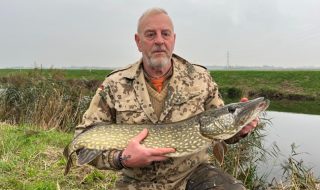The Angling Trust and the Salmon & Trout Association have written to the Director General of the National Farmers Union (NFU) demanding a retraction of the NFU’s false claims in its “Farming Delivers for Britain” campaign that 73% of rivers are in good condition and that agriculture is responsible for reductions in gross pollution since the 1990s.
In reality most of the improvements to river water quality have been achieved through investment in sewage treatment and that agriculture remains a very significant and widespread source of pollution in rivers and lakes. Indeed, as the National Audit Office pointed out in a recent report, it’s the success of water company investment that has helped reveal the true scale of diffuse pollution from agriculture. In many catchments, agriculture is by far the biggest reason why water quality and habitats are in a very poor condition.
The sad truth is that nearly three quarters of rivers in England and Wales are failing to meet Good Ecological Status, the standard for fish and plants and water quality set for a healthy river by the Water Framework Directive, with farming the second most commonly identified cause of failures. Erosion of riverbanks by stock, soil run-off, fertilisers and pesticides, spreading of slurry on saturated and compacted soil, and agricultural over-abstraction of water from rivers and groundwater are all commonplace in our countryside and cause, collectively, the death of many of our rivers by a thousand cuts.
Mark Lloyd, Chief Executive of the Angling Trust and Fish Legal said: “Agriculture is damaging fish stocks and other aquatic wildlife in nearly every river in the country to some extent. In many catchments it is the principal reason why our rivers are not teeming with fish. For the NFU to claim that our rivers are in good condition and that they are to be congratulated is laughably disingenuous to anyone who has any knowledge of the condition of our water bodies. Our lawyers often take civil legal action against farmers on behalf of our member clubs and riparian owners for gross pollution of fisheries and there is a more widespread, insidious pollution of rivers throughout the land from badly managed water, soil and animal faeces.”
Paul Knight, Chief Executive of the Salmon & Trout Association said: “There are, of course, many examples of farmers and landowners working closely with fisheries groups, The Rivers Trusts and Agencies to improve rivers and fisheries, and we commend their work. To make progress, we need the NFU to be open and realistic about the scale of the impacts of its industry on the water environment and show leadership to its members about the need to take concerted action. Also, Defra must realign agricultural subsidies and grants so that farmers are compensated and rewarded for environmental protection, building on the burgeoning success of the Higher Level Stewardship (HLS) Scheme.”





